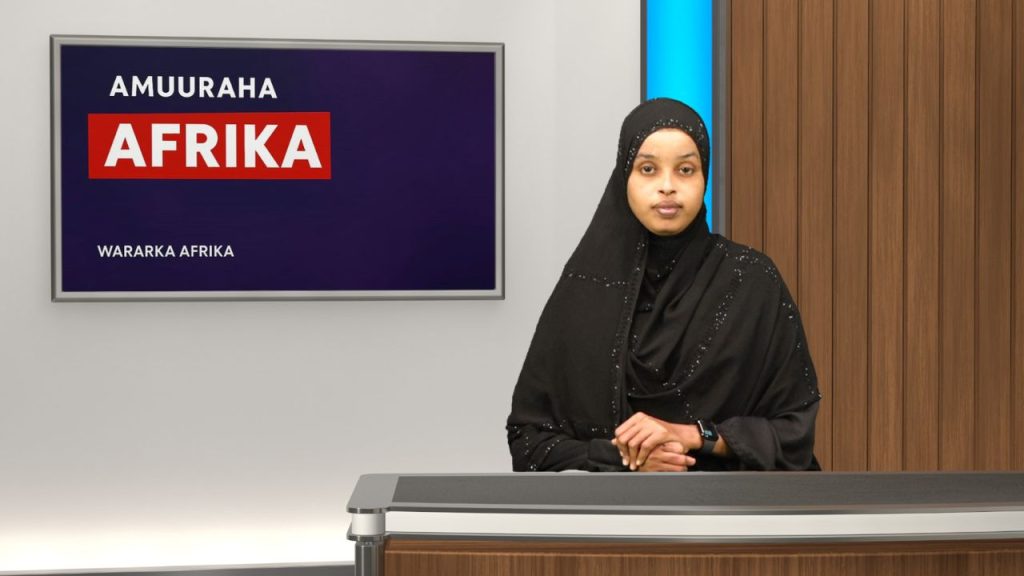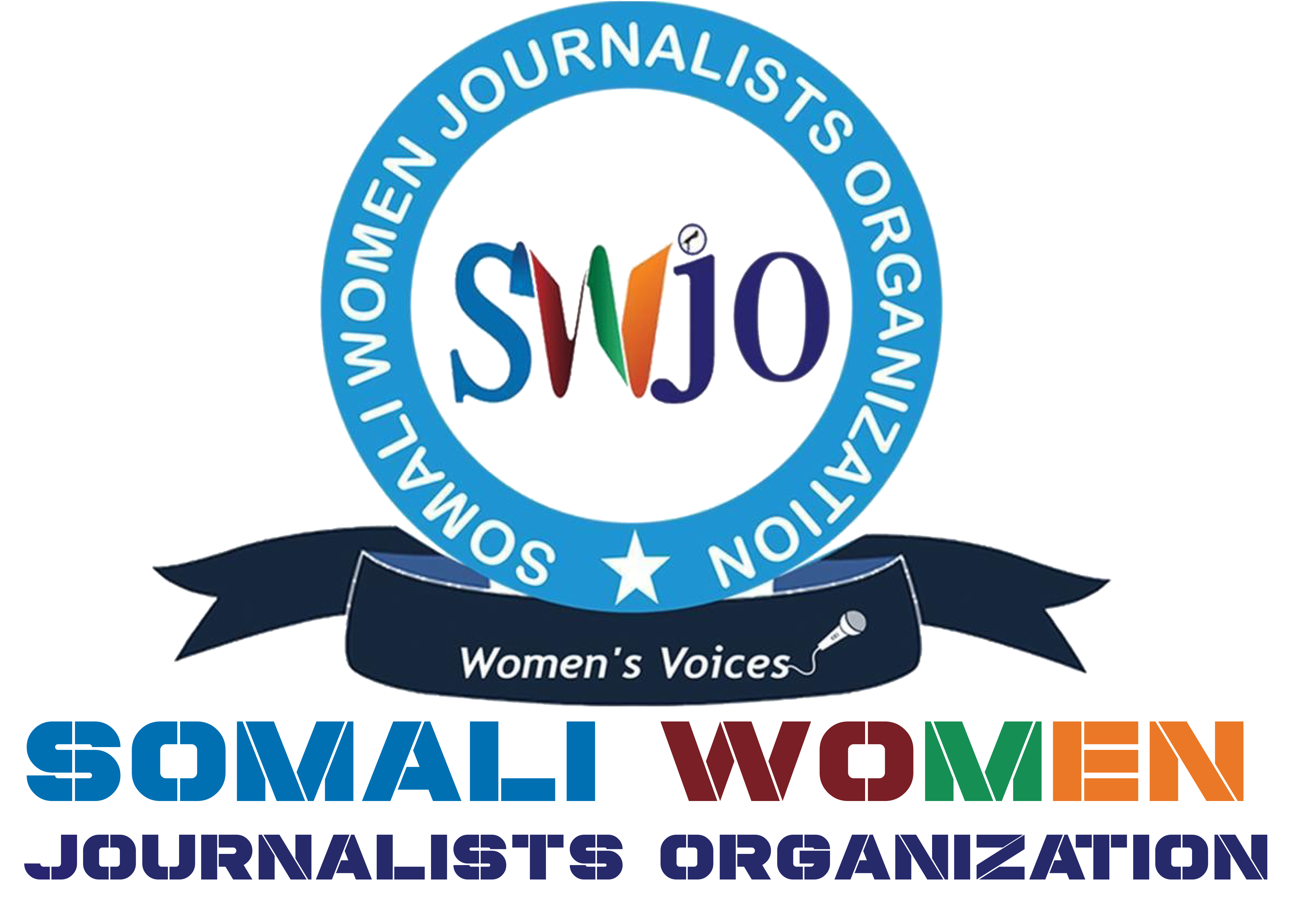
Nafisa reading the morning news
When Nafisa Hussein first stepped into a small radio studio as a trainee, she was a university student with little experience but a deep curiosity about journalism. She joined Sky FM, a sister station to Shabelle TV and Radio in 2017, and spent two years learning the craft while juggling her studies. In 2019, she officially joined Shabelle, producing the women’s affairs program before later becoming a newscaster.
Her journey from trainee to news anchor and now to Head of Human Resources at Shabelle Media is a story of determination, vision, and the power of support networks like the Somali Women Journalists Organization (SWJO).
Ms. Hussein has been an active participant in SWJO’s advocacy and training programs. These workshops strengthened her resolve and gave her the tools to push for changes within her station. “With the help of SWJO’s trainings, I became a strong advocate for a safe and healthy work environment,” she says. “We may still be small and face many challenges, but change is possible—and I want to make sure women feel comfortable and respected in our newsroom.”
That advocacy paid off. Shabelle Media introduced improvements such as designated spaces for prayer and rest, a five-day working week with two days off, and informal paid leave arrangements. For staff who had long been accustomed to long hours and little consideration for wellbeing, these were significant shifts.
In 2024, the once-trainee with deep curiosity for journalism became Head of Programs. At the time, the women’s affairs program had been discontinued. She saw this as a loss, not just for the station but for the women of Somalia whose voices had been silenced on air. Determined to change that, she campaigned to restart the program, giving space once again to the issues and perspectives of Somali women.
Ms. Hussein found herself increasingly drawing on the Gender Respect Declaration—a 23-point advocacy framework developed by SWJO in 2019 and signed by most Somali media houses, including Shabelle. The document sets out commitments ranging from providing women their own workspaces and ensuring access to paid leave, to investing in training and striving for balanced content.
For Nafisa, it became more than a declaration on paper. She used it as leverage to argue for tangible improvements inside her newsroom—spaces for prayer and rest, recognition of leave entitlements, and more consideration for women’s roles. Now, as Head of HR, she sees the Declaration as a guiding tool for her next priority: introducing formal, written contracts for staff. “The Gender Respect Declaration has been very useful for me,” she explains. “It is something our media has already committed to, so I use it to remind colleagues and managers of our obligations. Now I want to build on it by making sure contracts reflect those same principles.”

Nafisa on a live morning show.
The following year, 2025, the strong-minded advocate was appointed Head of HR, a role that places her at the center of efforts to professionalize the station. One of her top priorities is introducing written contracts for staff. Until now, journalists at Shabelle, like many across Somalia, have worked under oral agreements with no legal protections. Ms. Hussein wants to change that.
Her leadership also extends to the question of gender balance in content. In 2025, she participated in a workshop in Mogadishu where SWJO introduced its Gender Tracking Tool, designed to measure how men and women are represented in media. Nafisa believes in the tool’s value, but implementation has not been easy. “Our journalists are already overworked, and we don’t yet have written job descriptions that make it easy to assign someone to follow up on the tool,” she explains. “But I believe it is very important—it’s one of my priorities, and I will find a way to make it part of our daily work.”
Nafisa’s story is a reminder that meaningful change in Somali media often begins with individuals. With the right support, women journalists are not only advancing their own careers but also reshaping institutions from within. Her journey shows what happens when passion meets opportunity: a trainee becomes a leader, and a once-silent program finds its voice again.
For SWJO, her example underscores the importance of investing in women journalists and building their capacity to lead. Each step Nafisa has taken—from reviving a women’s affairs program to advocating for contracts and safer workplaces—illustrates how training and advocacy ripple outward, transforming media houses and, ultimately, the stories they tell.
Nafisa Hussein’s rise at Shabelle Media offers hope that Somali media can become more inclusive, more balanced, and more reflective of the society it serves. And with more women like her stepping forward, supported by organizations like SWJO, that hope is becoming a reality.
